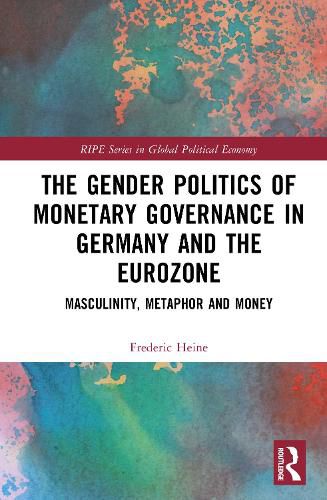Readings Newsletter
Become a Readings Member to make your shopping experience even easier.
Sign in or sign up for free!
You’re not far away from qualifying for FREE standard shipping within Australia
You’ve qualified for FREE standard shipping within Australia
The cart is loading…






The Gender Politics of Monetary Governance in Germany and the Eurozone provides a nuanced reading of how gender politics matter in monetary governance, contributing to a gendered critique of the political economy of Germany and the Eurozone and to efforts of 'de-patriarchalising' monetary and economic governance.
While gender aspects of economic governance have increasingly been made visible in critical scholarship, less focus has been placed on the role of masculinities and of monetary governance. This book shows that the intersection of gender politics and monetary governance plays a fundamental role in the making of the political economy. It argues that, materially, monetary governance amplifies gendered power hierarchies in (re)productive relations. Culturally, gendered narratives play an important role in performing the credibility and legitimacy of monetary governance. They do so by metaphorically making sense of monetary policy through masculinised gender qualities of authority, (self-) control, toughness, while disavowing feminised qualities such as temptation and excess. The book shows how these narratives have been mobilised at key junctures to promote a prioritisation of monetary and fiscal 'discipline' in German economic history, the institutional design of EMU and in the governance of the Eurozone crisis. These narratives are vital in producing opportunities for some and restricting them for others, enabling particular, hierarchical, forms of accumulation while foreclosing possibilities for different ways of doing economic relations. Yet, meanings are contingent, incomplete, and open to challenge, and thus monetary governance can be re-signified in order to facilitate social thriving beyond the strictures of heteronormativity and austerity.
This book will be of great interest to students and scholars researching International Political Economy, Gender and Politics, Men & Masculinity Studies, Economic Sociology and Cultural Economy, and European Studies.
$9.00 standard shipping within Australia
FREE standard shipping within Australia for orders over $100.00
Express & International shipping calculated at checkout
The Gender Politics of Monetary Governance in Germany and the Eurozone provides a nuanced reading of how gender politics matter in monetary governance, contributing to a gendered critique of the political economy of Germany and the Eurozone and to efforts of 'de-patriarchalising' monetary and economic governance.
While gender aspects of economic governance have increasingly been made visible in critical scholarship, less focus has been placed on the role of masculinities and of monetary governance. This book shows that the intersection of gender politics and monetary governance plays a fundamental role in the making of the political economy. It argues that, materially, monetary governance amplifies gendered power hierarchies in (re)productive relations. Culturally, gendered narratives play an important role in performing the credibility and legitimacy of monetary governance. They do so by metaphorically making sense of monetary policy through masculinised gender qualities of authority, (self-) control, toughness, while disavowing feminised qualities such as temptation and excess. The book shows how these narratives have been mobilised at key junctures to promote a prioritisation of monetary and fiscal 'discipline' in German economic history, the institutional design of EMU and in the governance of the Eurozone crisis. These narratives are vital in producing opportunities for some and restricting them for others, enabling particular, hierarchical, forms of accumulation while foreclosing possibilities for different ways of doing economic relations. Yet, meanings are contingent, incomplete, and open to challenge, and thus monetary governance can be re-signified in order to facilitate social thriving beyond the strictures of heteronormativity and austerity.
This book will be of great interest to students and scholars researching International Political Economy, Gender and Politics, Men & Masculinity Studies, Economic Sociology and Cultural Economy, and European Studies.